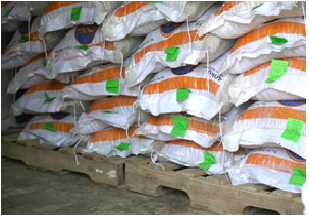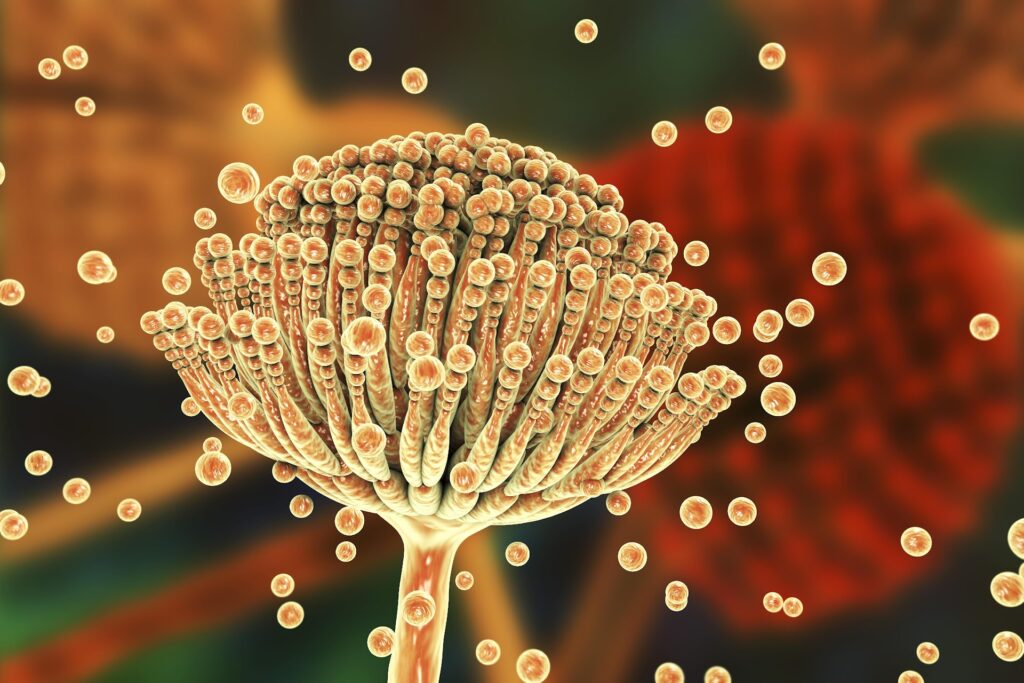Molds and mycotoxins in cattle feed can pose significant risks to the health and productivity of dairy cows. Some of the key risks include:
Reduced feed intake: Mycotoxins can reduce feed intake, leading to decreased feed efficiency and lower milk production.
Suppressed immune function: Mycotoxins can suppress the immune system, making the cows more susceptible to disease.
Liver and kidney damage: Certain mycotoxins can damage the liver and kidneys, leading to chronic health problems and reduced productivity.

Reproductive problems: Mycotoxins can cause infertility, reduced conception rates, and increased embryonic loss.
Poor feed utilization: Mycotoxins can interfere with nutrient absorption and utilization, reducing the efficiency of feed utilization.
Increased risk of infections: Mycotoxins can increase the risk of infections, particularly in the gut, which can further suppress the immune system and reduce feed efficiency.
Increased susceptibility to stress: Mycotoxins can increase the susceptibility of cows to stress, further reducing feed intake and productivity.
It’s important to minimize exposure of dairy cows to molds and mycotoxins, as these can have a significant impact on their health and productivity. Regular testing of feed and implementing proper storage and management practices can help reduce the risks associated with molds and mycotoxins in cow feed.
Proper storage: Store feed in a clean, dry, and well-ventilated area, and avoid overstocking or overcrowding. Moisture in the feed can encourage the growth of molds and mycotoxins, so it’s important to keep the feed dry and cool.

Regular testing: Regularly test feed samples for the presence of molds and mycotoxins. Testing can be done using commercially available kits or through a laboratory analysis.
The risks of molds and mycotoxins in cow feed can negatively impact the health and productivity of dairy cows. Here are some ways to mitigate these risks:
Use high-quality feed ingredients: Use high-quality, dry, and well-preserved feed ingredients that we use in Dasan feeds to reduce the risk of molds and mycotoxins. Avoid using moldy, spoiled, or otherwise contaminated feed.
Use of toxin binders: Add mold inhibitors to feed, such as propionic acid, to reduce the risk of mold growth.
Rotate feed: Rotate the feed on a regular basis to avoid extended exposure to molds and mycotoxins.

Reduce stress: Reduce stress in the cows, as stress can increase the risk of health problems associated with mycotoxins.
Provide adequate nutrition: Provide adequate nutrition to the cows to help them cope with the effects of molds and mycotoxins.
Implementing these practices can help reduce the risks of molds and mycotoxins in cow feed, and maintain the health and productivity of dairy cows.
Right from the procurement of raw materials till the production of Dasan feeds, we monitor and test the quality of ingredients. Dasan feeds are toxin compliant and are registered by government and private bodies.

